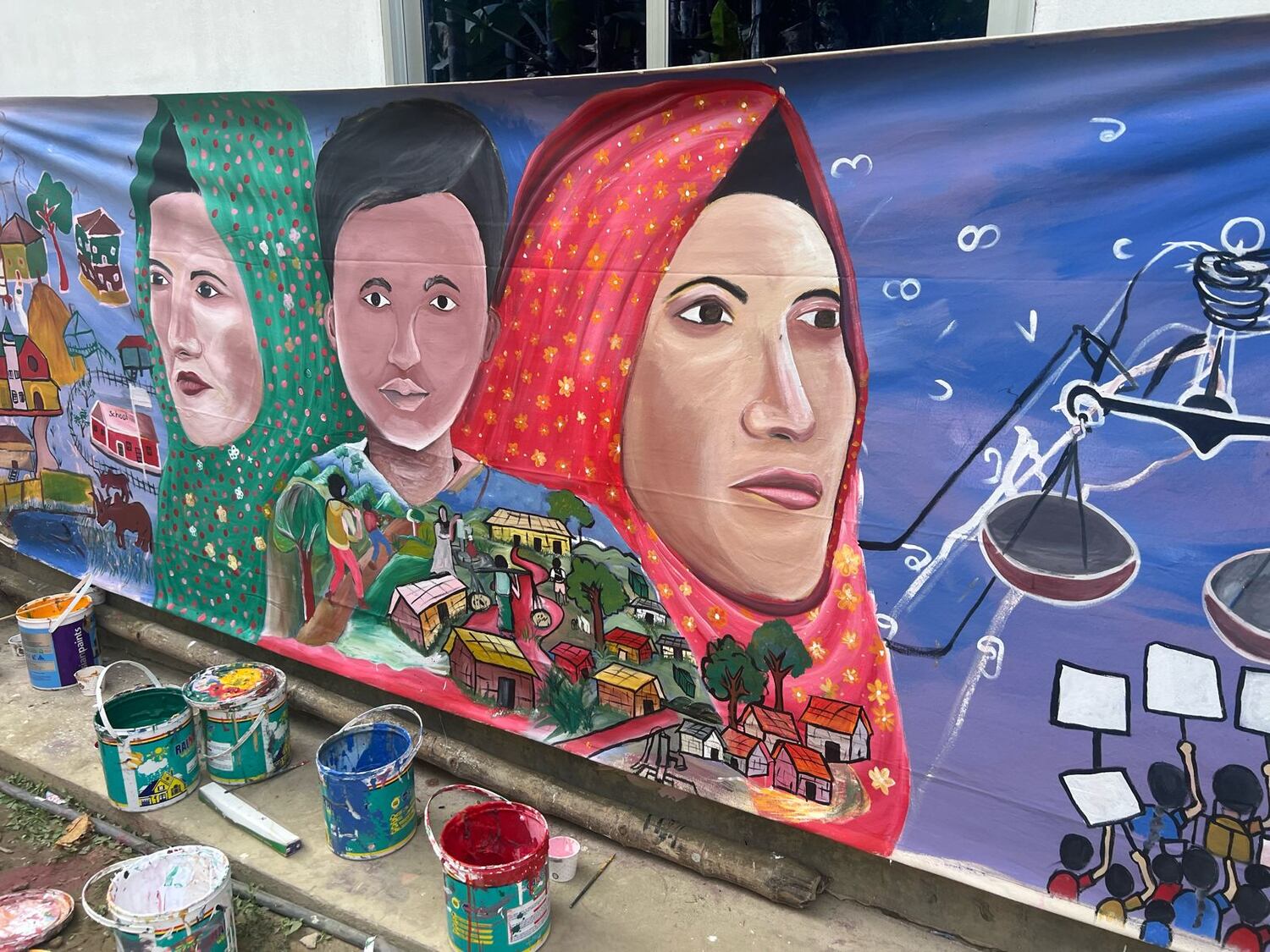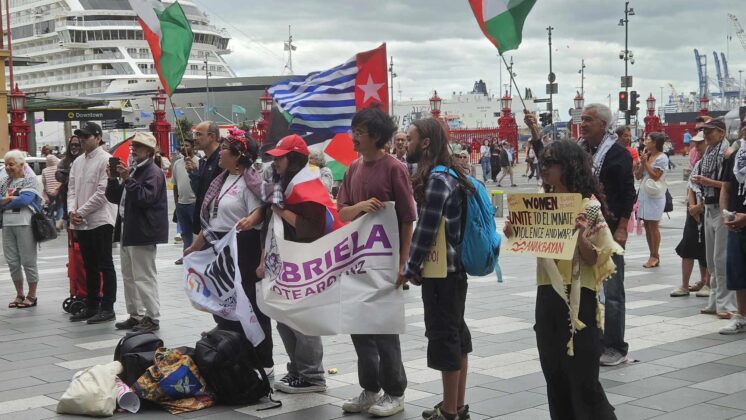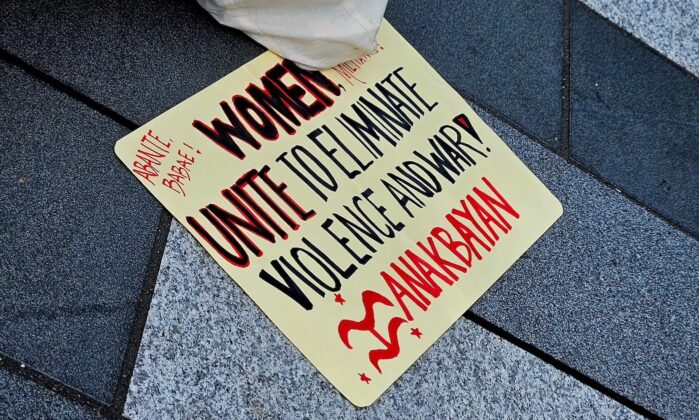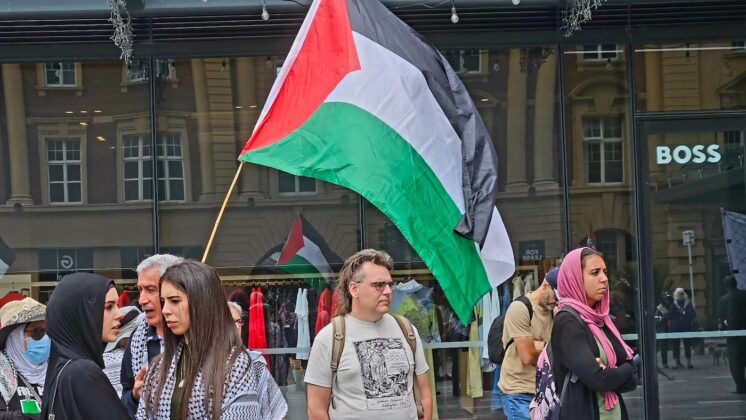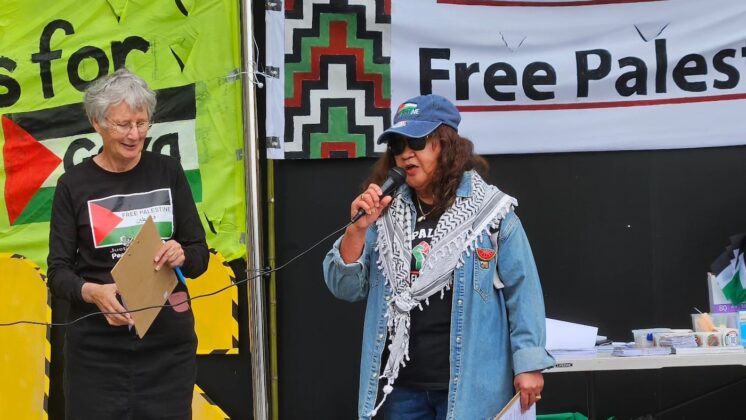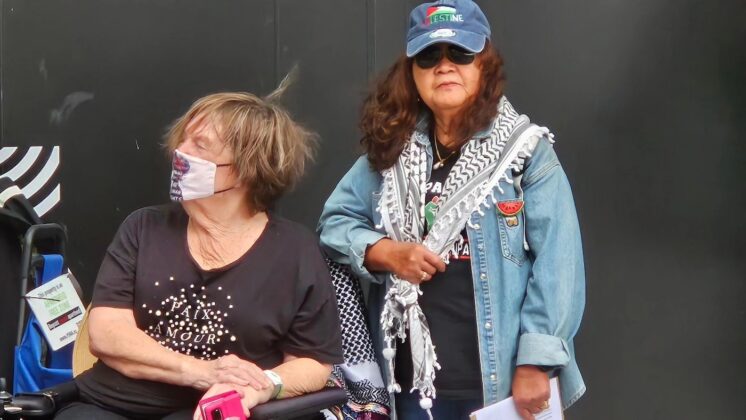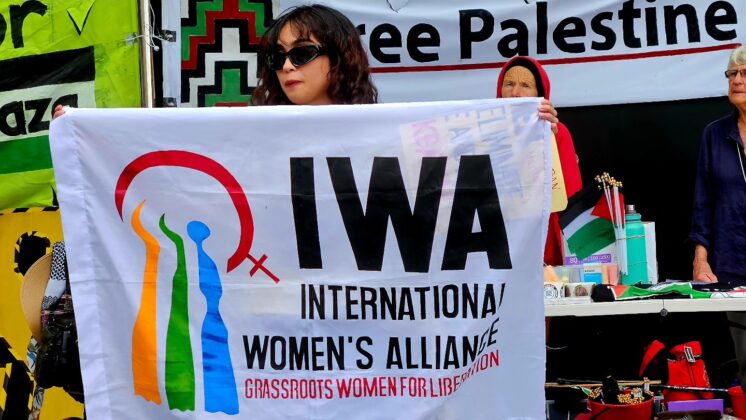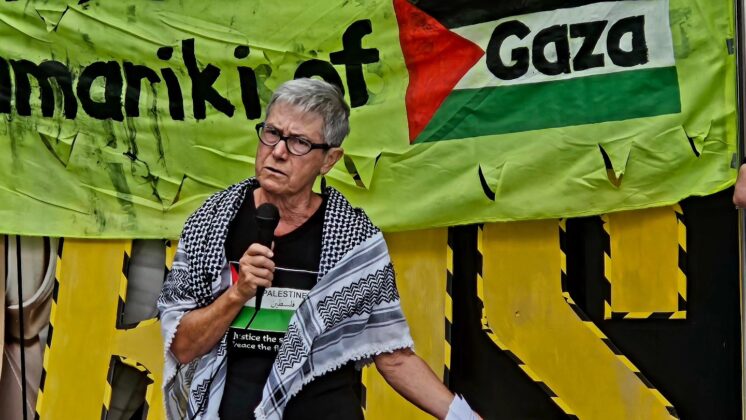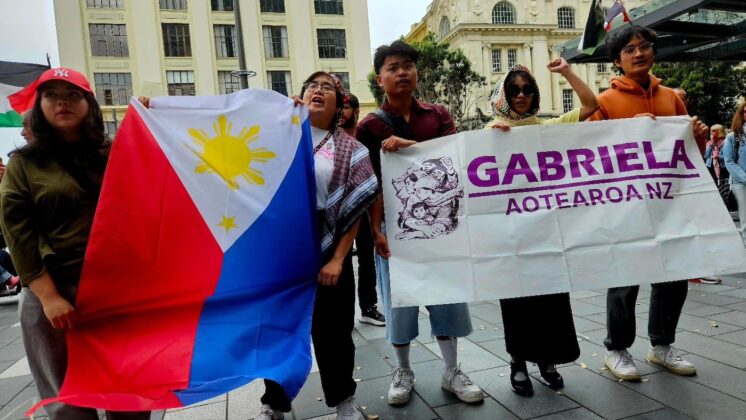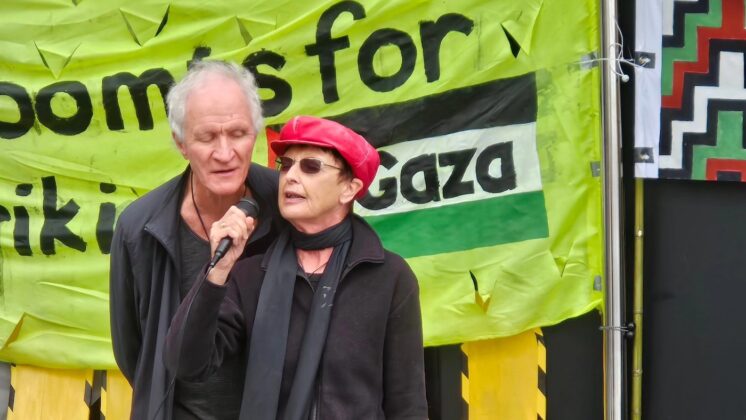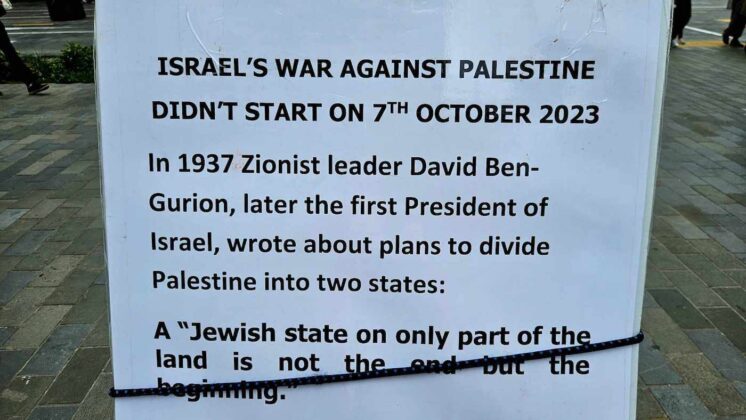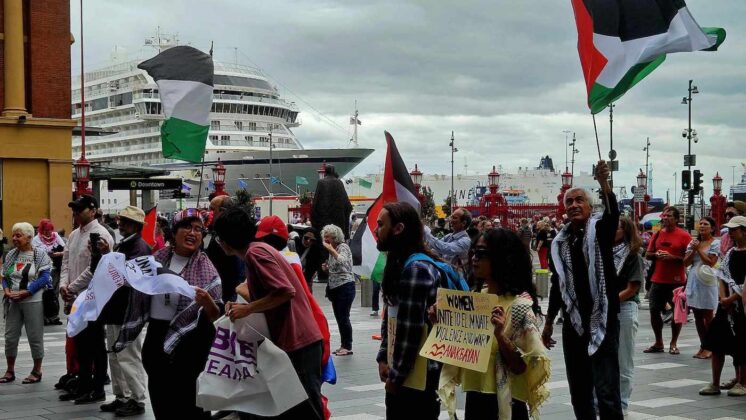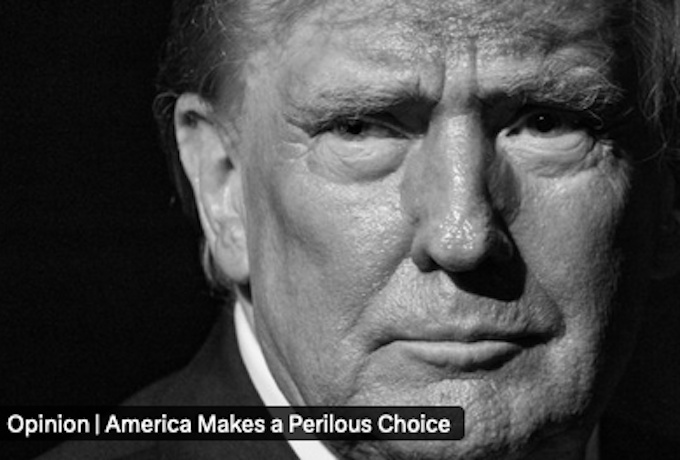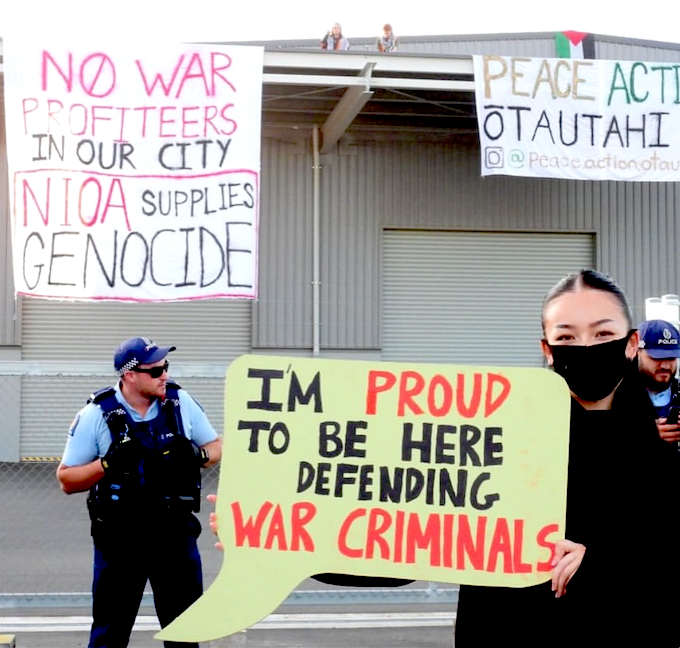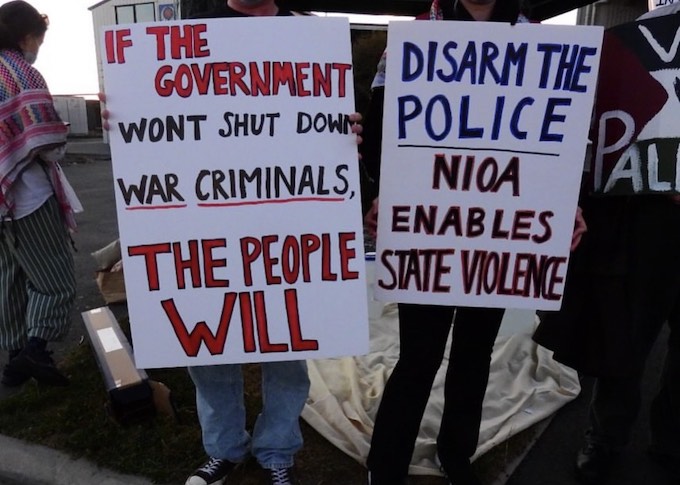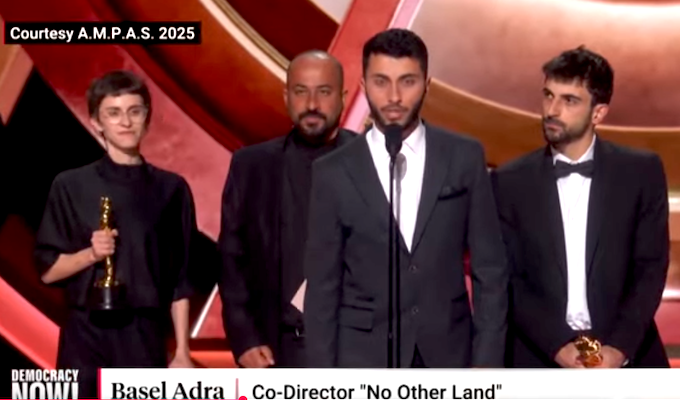 There has been a prolonged furore over the BBC’s craven decision to ban a documentary on life in Gaza under Israel’s bombs after it incensed Israel and its lobbyists by, uniquely, humanising the enclave’s children.
There has been a prolonged furore over the BBC’s craven decision to ban a documentary on life in Gaza under Israel’s bombs after it incensed Israel and its lobbyists by, uniquely, humanising the enclave’s children.
The English-speaking child narrator, 13-year-old Abdullah, who became the all-too-visible pretext for pulling the film Gaza: How to Survive a Warzone because his father is a technocrat in the enclave’s Hamas government, hit back last week.
He warned that the BBC had betrayed him and Gaza’s other children, and that the state broadcaster would be responsible were anything to happen to him
His fears are well-founded, given that Israel has a long track record of executing those with the most tenuous of connections to Hamas – as well as the enclave’s children, often with small, armed drones that swarm through its airspace.
The noisy clamour over How to Survive a Warzone has dominated headlines, overshadowing another new BBC documentary on Gaza – this one a three-part, blockbuster series on the history of Israel and Palestine – that has received none of the controversy.
And for good reason.
Israel and the Palestinians: The Road to 7th October, whose final episode airs this Monday, is such a travesty, so discredited by the very historical events it promises to explain, that it earns a glowing, five-star review from the Guardian.
It “speaks to everyone that matters”, the liberal daily gushes. And that’s precisely the problem.
What we get, as a result, is the very worst in BBC establishment TV: talking heads reading from the same implausibly simplistic script, edited and curated to present western officials and their allies in the most sympathetic light possible.
Which is no mean feat, given the subject matter: nearly eight decades of Israel’s ethnic cleansing, dispossession, military occupation and siege of the Palestinian people, supported by the United States.
But this documentary series on the region’s history should be far more controversial than the film about Gaza’s children. Because this one breathes life back into a racist western narrative – one that made the genocide in Gaza possible, and justifies Israel’s return this month to using mass starvation as a weapon of war against the Palestinian people.
The Road to 7th October presents an all-too-familiar story.
The Palestinians are divided geographically and ideologically – how or why is never properly grappled with – between the incompetent, corrupt leadership of Fatah under Mahmoud Abbas in the West Bank, and the militant, terrorist leadership of Hamas in Gaza.
Israel tries various peace initiatives under leaders Ariel Sharon and Ehud Olmert. These failures propel the more hardline Benjamin Netanyahu to power.
The United States is the star of the show, of course. Its officials tell a story of Washington desperately trying to bring together the two parties, Israel and Fatah (the third party, Hamas, is intentionally sidelined), but finds itself constantly hamstrung by bad luck and the intransigence of those involved.
Yes, you read that right. This documentary really does resurrect the Washington as “honest broker” fiction – a myth that was supposed to have been laid to rest a quarter of a century ago, after the Oslo accords collapsed.
The film-makers are so lost to the reality in Israel and Palestine that they imagine they can credibly keep Washington perched on a pedestal even after we have all spent the past 16 months watching, first, President Biden arm Israel’s “plausible” genocide in Gaza, killing many tens of thousands of Palestinians, and then President Trump formulate an illegal plan to ethnically cleanse the enclave of its surviving Palestinian population to develop it as a luxury “waterfront property”.
A viewing of a short, Trump-endorsed, AI-generated promo video for a glitzy, Palestinian-free “Trump Gaza”, built on the crushed bodies of the enclave’s children, should be enough to dispel any remaining illusions about Washington’s neutrality on the matter.
Enduring mystery
This documentary, like its BBC predecessors – most notably on Russia and Ukraine, and the implosion of Yugoslavia – excels at offering a detailed examination of tree bark without ever stepping back far enough to see the shape of the forest.
The words “apartheid”, “siege” and “colonialism” – the main lenses through which one can explain what has been happening to the Palestinian people for a century or more – do not figure at all.
There is a single allusion to the events of 1948, when a self-declared Jewish state was violently founded as a colonial project on the ruins of the Palestinians’ homeland.
Or as the documentary delicately puts it: “Millions of their people [the Palestinians] had been made refugees by decades of conflict.”
As ever, when the plight of the Palestinians is discussed, the passive voice is put to sterling use. Millions of Palestinians were accidentally ethnically cleansed, it seems. Who was responsible is a mystery.
In fact, most of Gaza’s population are descended from Palestinian families expelled by the newly declared state of Israel from their homes in 1948. They were penned up in a tiny piece of land by European colonisers in the same manner as earlier generations of European colonisers confined the Native Americans to reservations.
Even when the term “occupation” appears, as it does on the odd occasion, it is presented as some vague, unexamined, security-related problem the US, Israel and the Fatah leadership are engaged in trying to fix.
The settlements are mentioned too, but only as the backdrop to land-for-peace calculations that never come to fruition as the basis for an elusive “peace”.
In other words, this is the reheating of a phoney tale that Israel and the US have been trying to sell to western publics for many decades.
It was holed well below the water line last year by the International Court of Justice (ICJ), the highest court in the world. It ruled that Israel’s occupation of the West Bank, Gaza and East Jerusalem was illegal, that Israeli rule over the Palestinians was a form of apartheid, and that its illegal settlements needed to be dismantled immediately.
That is the forest all the documentary’s furious bark-studying is designed to avoid.
The makers of Israel and the Palestinians: The Road to 7th October choose to begin their time line on an obscure date: 19 August 2003, when a Palestinian suicide bomber blows up a bus in Jerusalem, killing 23 Israelis.
Why then?
The programme, despite its title, is not really about the “Palestinians”. Note that the BBC dares not refer to “Palestine”.
The true focus is on Hamas and its rise to power in Gaza, as viewed chiefly by the other parties: the US, Israel and Fatah.
Starting the story in 2003 with a bus bombing, the programme can navigate “The Road to 7thOctober” in ways that assist the self-serving narratives those other parties wish to tell.
On the Palestinian side, the story opens with a terror attack. On Israel’s side, it opens with Sharon deciding, in response, to dismantle the illegal settlements in Gaza and withdraw Israeli troops from the enclave.
This entirely arbitrary date allows the programme makers to create an entirely misleading narrative arc: of Israel supposedly ending the occupation and trying to make peace, while being met with ever greater terrorism from Hamas, culminating in the 7 October attack.
In short, it perpetuates the long-standing colonial narrative – contrary to all evidence – of Israel as the good guys, and the Palestinians as the bad guys.
In an alternate universe, the BBC might have offered us a far more informative, relevant documentary called Israel and Palestine: The Path to Genocide.
Don’t hold your breath waiting for that one to air.
In fact, Sharon’s so-called Disengagement Plan of 2005 had nothing to do with ending the occupation or peace-making. It was a trap laid for the Palestinians.
The disengagement did not end the occupation of Gaza, as the ICJ noted in its ruling last year. It simply reformulated it.
Israeli soldiers pulled back to the perimeter of the enclave – what Israeli and US officials like to falsely term its “borders” – where Israel had previously established a highly fortified wall with armed watchtowers.
Stationed along this perimeter, the Israeli army instituted an oppressive Medieval-style siege, blockading access to Gaza by land, sea and air. The enclave was monitored 24/7 with drones patrolling the skies.
Even before Hamas won legislative elections in 2006 and came to power in Gaza, the tiny coastal strip of land looked like it was the backdrop for a dystopian Hollywood movie.
But after Hamas’ victory, as the talking heads cheerily explain, the gloves really came off. What that meant in practice is not spelled out – and for good reason.
The Israeli army put Gaza on “rations”, carefully counting the calories entering the enclave to create widespread hunger and malnutrition, especially among Gaza’s children.
The Israeli official behind the scheme explained the reasoning at the time: “The idea is to put the Palestinians on a diet, but not to make them die of hunger.”
That official – Dov Weisglass, Olmert’s main adviser – is one of the central talking heads in episode one. And yet strangely, he is never asked about Gaza’s “diet”.
Stephen Hadley, George W Bush’s deputy national security adviser, claims – unchallenged – that Sharon’s disengagement was “a downpayment on a Palestinian state. … They [the Palestinians] would have an opportunity to build and show the world that they were ready to live side by side in peace with Israel”.
Israel’s real goal, all too evident then and impossible to ignore now, was something else entirely.
Yes, withdrawing from Gaza allowed Israel to falsely claim the occupation in Gaza had ended and focus instead on the colonisation of the West Bank, as the documentary briefly grants.
Yes, it split geographically the main territories forming the basis of a future Palestinian state and encouraged irreconciliable leaderships in each – divide and rule on steroids.
But even more importantly, by making Gaza effectively a giant concentration camp, blockaded on all sides, Israel ensured that the accommodationists of Fatah would lose credibility in the enclave and militant resistance movements led by Hamas would gain ascendancy.
That was the trap.
Hamas, and the people of Gaza, were denied any legitimacy so long as they insisted on a right – enshrined in international law – to resist their occupation and besiegement by Israel.
It was a message – a warning – directed at Fatah and the West Bank too. Resistance is futile. Keep your heads down or you’ll be next.
 Which is exactly the lesson Abbas learnt, soon characterising his security forces’ collusion with the Israeli occupation as “sacred”.
Which is exactly the lesson Abbas learnt, soon characterising his security forces’ collusion with the Israeli occupation as “sacred”.
For Gaza, the US notion of living in “peace alongside Israel” meant surviving just barely and quietly, inside their cage, accepting the diet Olmert and Weisglass had put them on.
Making any noise – such as by firing rockets out of the concentration camp, or massing at the heavily armed walls of their cage in protest – was terrorism. Die more quietly, Israel and the international community demanded.
Perversely, much of episiode one is dedicated to US officals spinning their conspiracy to foil the results of the 2006 Palestinian election, won by Hamas, as democracy promotion.
They demanded Hamas give up armed resistance or the 2 million people of Gaza, half of them children, would face a continuing blockade and starvation diet – that is, illegal collective punishment.
Or as Robert Danin, a US State Department official, puts it, the plan was “either Hamas would reform and become a legitimate political party or it would remain isolated”. Not just Hamas isolated, but all of Gaza. Die more quietly.
The hope, he adds, was that by immiserating the population “Gazans would throw off the yoke of Hamas” – that is, accept their fate to live as little more than “human animals” in an Israeli-run zoo.
Hamas, both its proto-army and its proto-government, learnt ways to adapt.
It built tunnels under the enclave’s one, short border with Egypt to resist Israel’s siege by trading with the neighbouring population in Sinai and keeping the local economy just barely afloat.
It fired primitive rockets, which rarely killed anyone in Israel, but achieved other goals.
The rocket fire created a sense of fear in Israeli communities near Gaza, which Hamas occasionally managed to leverage for minor concessions from Israel, such as an easing of the blockade – but only when Israel didn’t prefer, as it usually did, to respond with more violence.
The rockets also prevented Gaza and its suffering from disappearing completely from international news coverage – the “Die more quietly” agenda pursued by Israel – even if the price was that the western media could denounce Hamas even more noisily as terrorists.
And the rockets offered a strategic alternative – armed resistance, its nature shaped by Hamas’ confinement in the Gaza concentration camp – to Fatah’s quietist, behind-the-scenes diplomacy seeking negotiations that were never forthcoming.
Finally, confronted with the permanent illegitimacy trap set for it by Israel and the US, Hamas approved in 2018 mass, civil disobedience protests at the perimeter fence of the concentration camp it was supposedly “ruling”.
Israel, backed by the US, responded with increased structural violence to all these forms of resistance.
In the last two programmes, Israeli and US officials set out the challenges and technical solutions they came up with to prevent their victims from breaking out of their “isolation” – the concentration camp that Gaza had been turned into.
Underground barriers were installed to make tunnelling more difficult.
Rocket fire was met with bouts of “mowing the lawn” – that is, carpet-bombing Gaza, indifferent to the Palestinian death toll.
And thousands of the ordinary Palestinians who massed for months on end at the perimeter fence in protest were either executed or shot in the knee by Israeli snipers.
Or as the documentary’s narrator characterises it: “At the border with Israel, protesters clashed with Israeli forces, and dozens of Palestinians were killed.”
Blink, and you might miss it.
Only by looking beneath the surface of this facile documentary can be found a meaningful answer to the question of what led to the attack on 7 October.
Israel’s strategy of “isolation” – the blockade and diet – compounded by intermittent episodes of “mowing the lawn” was always doomed to failure. Predictably, the Palestinians’ desire to end their imprisonment in a concentration camp could not be so easily subdued.
The human impulse for freedom and for the right to live with dignity kept surfacing.
Ultimately, it would culminate in the 7 October attack. Like most breakouts from barbaric systems of oppression, including slave revolts in the pre-civil rights US, Hamas’ operation ended up mirroring many of the crimes and atrocities inflicted by the oppressor.
Israel and the US, of course, learnt nothing. They have responded since with intensified, even more obscene levels of violence – so grave that the world’s highest court has put Israel on trial for genocide.
Obscured by The Road to 7th October is the reality that Israel has always viewed the Palestinians as “human animals”. It just needed the right moment to sell that script to western publics, so that genocide could be recast as self-defence.
The 7th October attack offered the cover story Israel needed. And the western media, most especially the BBC, played a vital part in amplifying that genocide-justifying narrative through its dehumanisation of the Palestinian people.
Its one break with that policy – its humanising portrait of Gaza’s children in How to Survive a Warzone – caused an uproar that has echoed for weeks and seen the BBC’s director general, Tim Davie, dragged before a parliamentary committee.
But in truth, we ought to be appalled that this is the only attempt the BBC has made, after 17 months of genocide, to present an intimate view of life for the people of Gaza, especially its children, under Israel’s bombs. The state broadcaster only dared doing so after stripping away the politics of Gaza’s story, reducing decades of the Palestinian people’s oppression by Israel to a largely author-less “humanitarian crisis”.
Not only is the programme never likely to see the light of day again on the BBC but, after all this commotion, the corporation is unlikely ever again to commission a similarly humanising programme about the Palestinian people.
There is a good reason why there has been no comparable clamour for the BBC to pull Israel and the Palestinians: The Road to 7th October.
The historical and political context offered by the documentary does nothing to challenge a decades-old, bogus narrative on Israel and Palestine – one that has long helped conceal Israel’s turning of Gaza into a concentration camp, one that made something like the 7 October breakout almost inevitable, and one that legitimised months of genocide.
The Road to 7th October seeks to rehabilitate a narrative that should be entirely discredited by now.
In doing so, the BBC is assisting Israel in reviving a political climate in which the genocide in Gaza can resume, with Netanyahu re-instituting mass starvation as a weapon of war and spreading Israel’s ethnic cleansing operations to the West Bank.
We don’t need more official narratives about the most misrepresented “conflict” in history. We need journalistic courage and integrity. Don’t look to the BBC for either.
The post
New BBC Documentary “The Road to 7th October” is an Utter Travesty first appeared on
Dissident Voice.
This content originally appeared on Dissident Voice and was authored by Jonathan Cook.
This post was originally published on Radio Free.
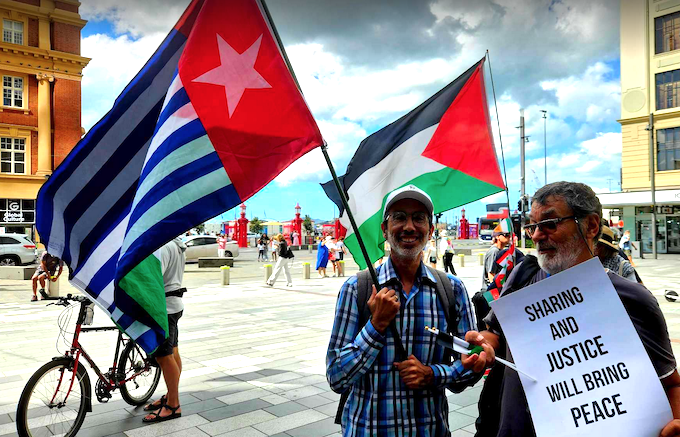
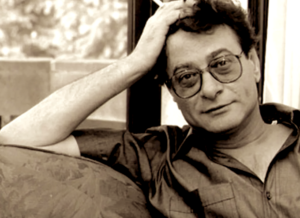
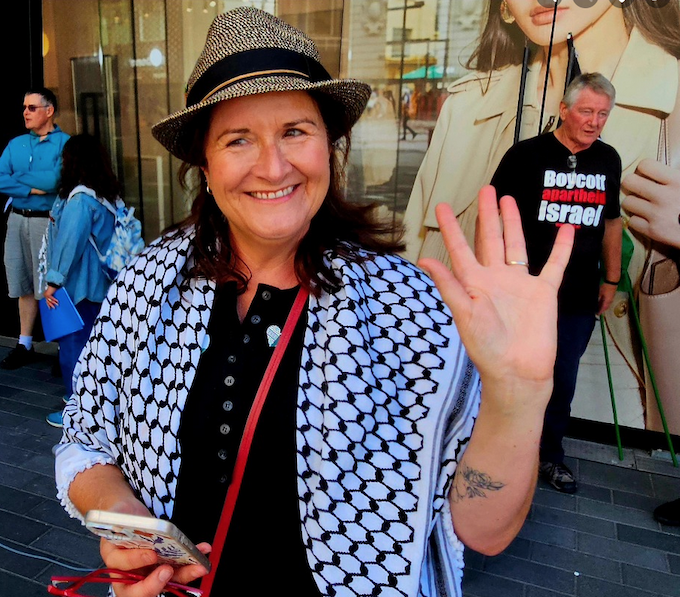
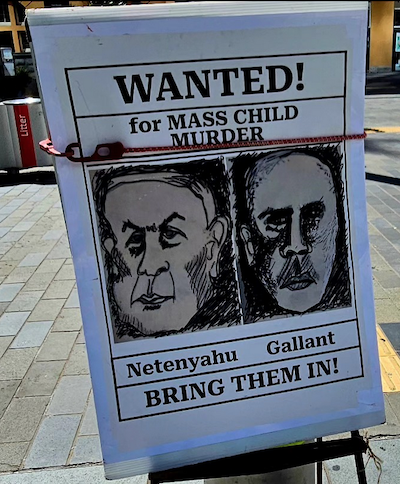
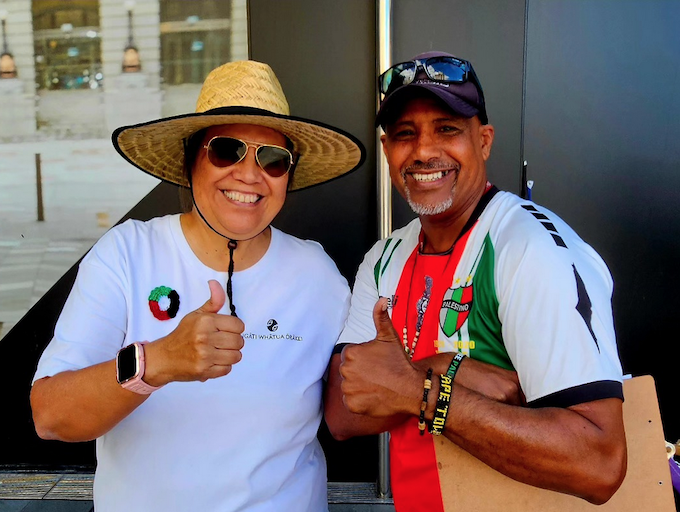

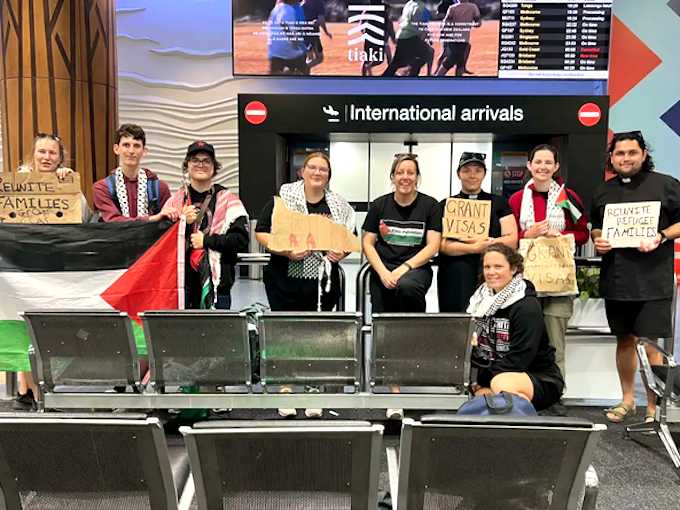
 There has been a prolonged furore over the BBC’s craven decision to ban a documentary on life in Gaza under Israel’s bombs after it incensed Israel and its lobbyists by, uniquely, humanising the enclave’s children.
There has been a prolonged furore over the BBC’s craven decision to ban a documentary on life in Gaza under Israel’s bombs after it incensed Israel and its lobbyists by, uniquely, humanising the enclave’s children. Which is exactly the lesson Abbas learnt, soon characterising his security forces’ collusion with the Israeli occupation as “
Which is exactly the lesson Abbas learnt, soon characterising his security forces’ collusion with the Israeli occupation as “